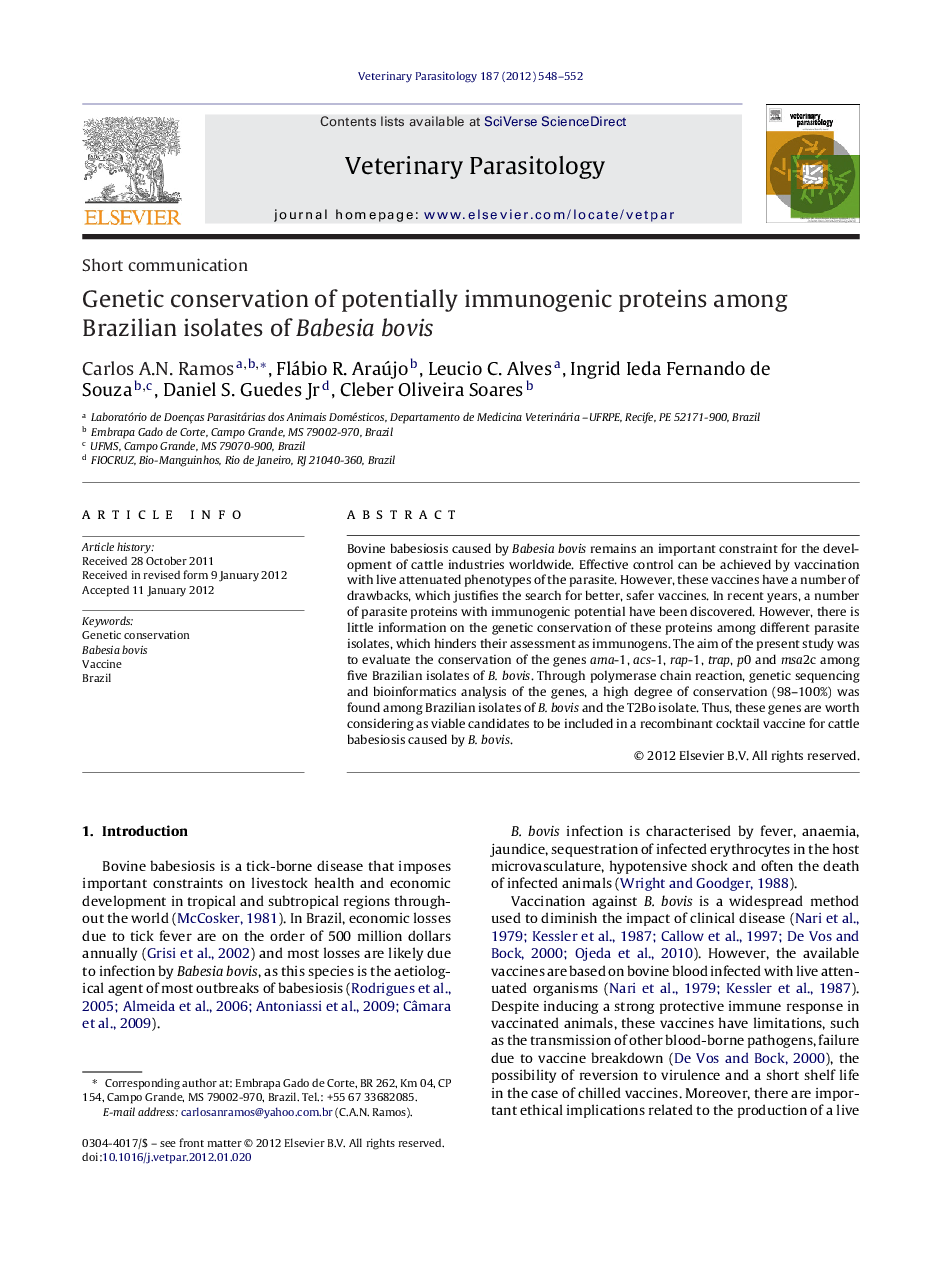| Article ID | Journal | Published Year | Pages | File Type |
|---|---|---|---|---|
| 5804943 | Veterinary Parasitology | 2012 | 5 Pages |
Bovine babesiosis caused by Babesia bovis remains an important constraint for the development of cattle industries worldwide. Effective control can be achieved by vaccination with live attenuated phenotypes of the parasite. However, these vaccines have a number of drawbacks, which justifies the search for better, safer vaccines. In recent years, a number of parasite proteins with immunogenic potential have been discovered. However, there is little information on the genetic conservation of these proteins among different parasite isolates, which hinders their assessment as immunogens. The aim of the present study was to evaluate the conservation of the genes ama-1, acs-1, rap-1, trap, p0 and msa2c among five Brazilian isolates of B. bovis. Through polymerase chain reaction, genetic sequencing and bioinformatics analysis of the genes, a high degree of conservation (98-100%) was found among Brazilian isolates of B. bovis and the T2Bo isolate. Thus, these genes are worth considering as viable candidates to be included in a recombinant cocktail vaccine for cattle babesiosis caused by B. bovis.
